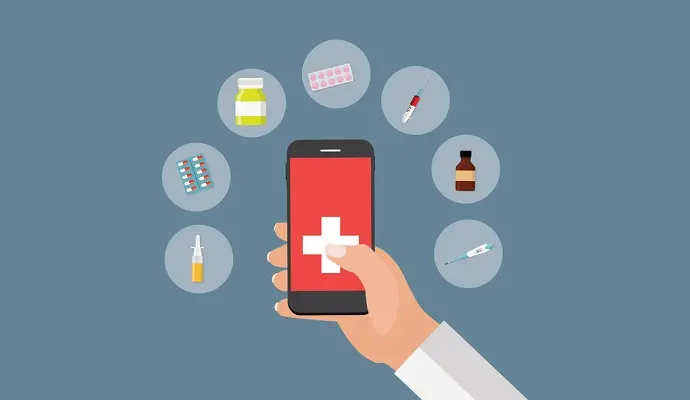- Home
- Medical news & Guidelines
- Anesthesiology
- Cardiology and CTVS
- Critical Care
- Dentistry
- Dermatology
- Diabetes and Endocrinology
- ENT
- Gastroenterology
- Medicine
- Nephrology
- Neurology
- Obstretics-Gynaecology
- Oncology
- Ophthalmology
- Orthopaedics
- Pediatrics-Neonatology
- Psychiatry
- Pulmonology
- Radiology
- Surgery
- Urology
- Laboratory Medicine
- Diet
- Nursing
- Paramedical
- Physiotherapy
- Health news
- Fact Check
- Bone Health Fact Check
- Brain Health Fact Check
- Cancer Related Fact Check
- Child Care Fact Check
- Dental and oral health fact check
- Diabetes and metabolic health fact check
- Diet and Nutrition Fact Check
- Eye and ENT Care Fact Check
- Fitness fact check
- Gut health fact check
- Heart health fact check
- Kidney health fact check
- Medical education fact check
- Men's health fact check
- Respiratory fact check
- Skin and hair care fact check
- Vaccine and Immunization fact check
- Women's health fact check
- AYUSH
- State News
- Andaman and Nicobar Islands
- Andhra Pradesh
- Arunachal Pradesh
- Assam
- Bihar
- Chandigarh
- Chattisgarh
- Dadra and Nagar Haveli
- Daman and Diu
- Delhi
- Goa
- Gujarat
- Haryana
- Himachal Pradesh
- Jammu & Kashmir
- Jharkhand
- Karnataka
- Kerala
- Ladakh
- Lakshadweep
- Madhya Pradesh
- Maharashtra
- Manipur
- Meghalaya
- Mizoram
- Nagaland
- Odisha
- Puducherry
- Punjab
- Rajasthan
- Sikkim
- Tamil Nadu
- Telangana
- Tripura
- Uttar Pradesh
- Uttrakhand
- West Bengal
- Medical Education
- Industry
Mobile Apps may enhance Medication Adherence in CKD Patients, reveals research

Researchers have found in a new study that Mobile apps demonstrate potential in enhancing medication adherence among patients with chronic kidney disease (CKD). While several apps have shown effectiveness, current evidence remains limited, highlighting the need for further research to confirm their impact on clinical outcomes.
Chronic kidney disease (CKD) is a serious condition affecting millions of individuals worldwide. Adherence to medication regimens among patients with CKD is often suboptimal, leading to poor health outcomes. In recent years, mobile apps have gained popularity as a promising tool to improve medication adherence and self-management in various chronic diseases.
This study aimed to evaluate the effectiveness of mobile apps to improve medication adherence among patients with CKD (including end-stage and renal replacement therapy). A systematic search was conducted using Scopus, Cochrane, PubMed, and EBSCOhost to include eligible articles that studied mobile apps to improve medication adherence among patients with CKD. The quality of the selected studies was evaluated using the Newcastle‒Ottawa Scale and the Cochrane risk-of-bias tool.
Results: Out of 231 relevant articles, only 9 studies were selected for this systematic review. Based on Newcastle‒Ottawa Scale, 7 were deemed to be of high quality, while others were of fair quality. The Cochrane risk-of-bias tool indicated a low to moderate risk of bias across the included studies. Most of the included studies had a randomized controlled design. Of the 9 selected studies, 3 papers represented medication adherence by a coefficient of 10 variability of tacrolimus, 3 papers used adherence measurement scales to calculate the score for assessing medication adherence, 2 papers represented medication adherence by self-reporting, 2 papers represented medication adherence using electronic monitoring, and 1 represented medication adherence by pill count. The mobile apps were identified as Transplant Hero (Transplant Hero LLC), Perx (Perx Health), Smartphone Medication Adherence Saves Kidneys (developed by John McGillicuddy), Adhere4U (developed by Ahram Han), My Dialysis (developed by Benyamin Saadatifar), Kidney Love (developed by National Kidney foundation), and iCKD (developed by Dr Vivek Kumar). Of these apps, 3 focused on evaluating Transplant Hero, while the remaining investigated each of the other mentioned apps individually.
The apps use various strategies to promote medication adherence, including reminders, gamification, patient education, and medication monitoring. A majority, 5 out of 9 mobile apps, had a statistically significant (P<.05) effect on medication adherence. There was strong evidence for a positive effect of interventions focusing on games and reminders combined with electronic medication tray monitoring and patient education. Mobile apps effectively improved medication adherence in patients with CKD, but low evidence and short intervention duration warrant caution. Future research should identify ideal features, provider costs, and user-friendly, secure apps.
Reference:
Paneerselvam GS, Lua PL, Chooi WH, Rehman IU, Goh KW, Ming LC. Effectiveness of Mobile Apps in Improving Medication Adherence Among Chronic Kidney Disease Patients: Systematic Review. J Med Internet Res. 2025 Apr 16;27:e53144. doi: 10.2196/53144. PMID: 40239197.
Dr. Shravani Dali has completed her BDS from Pravara institute of medical sciences, loni. Following which she extensively worked in the healthcare sector for 2+ years. She has been actively involved in writing blogs in field of health and wellness. Currently she is pursuing her Masters of public health-health administration from Tata institute of social sciences. She can be contacted at editorial@medicaldialogues.in.
Dr Kamal Kant Kohli-MBBS, DTCD- a chest specialist with more than 30 years of practice and a flair for writing clinical articles, Dr Kamal Kant Kohli joined Medical Dialogues as a Chief Editor of Medical News. Besides writing articles, as an editor, he proofreads and verifies all the medical content published on Medical Dialogues including those coming from journals, studies,medical conferences,guidelines etc. Email: drkohli@medicaldialogues.in. Contact no. 011-43720751


